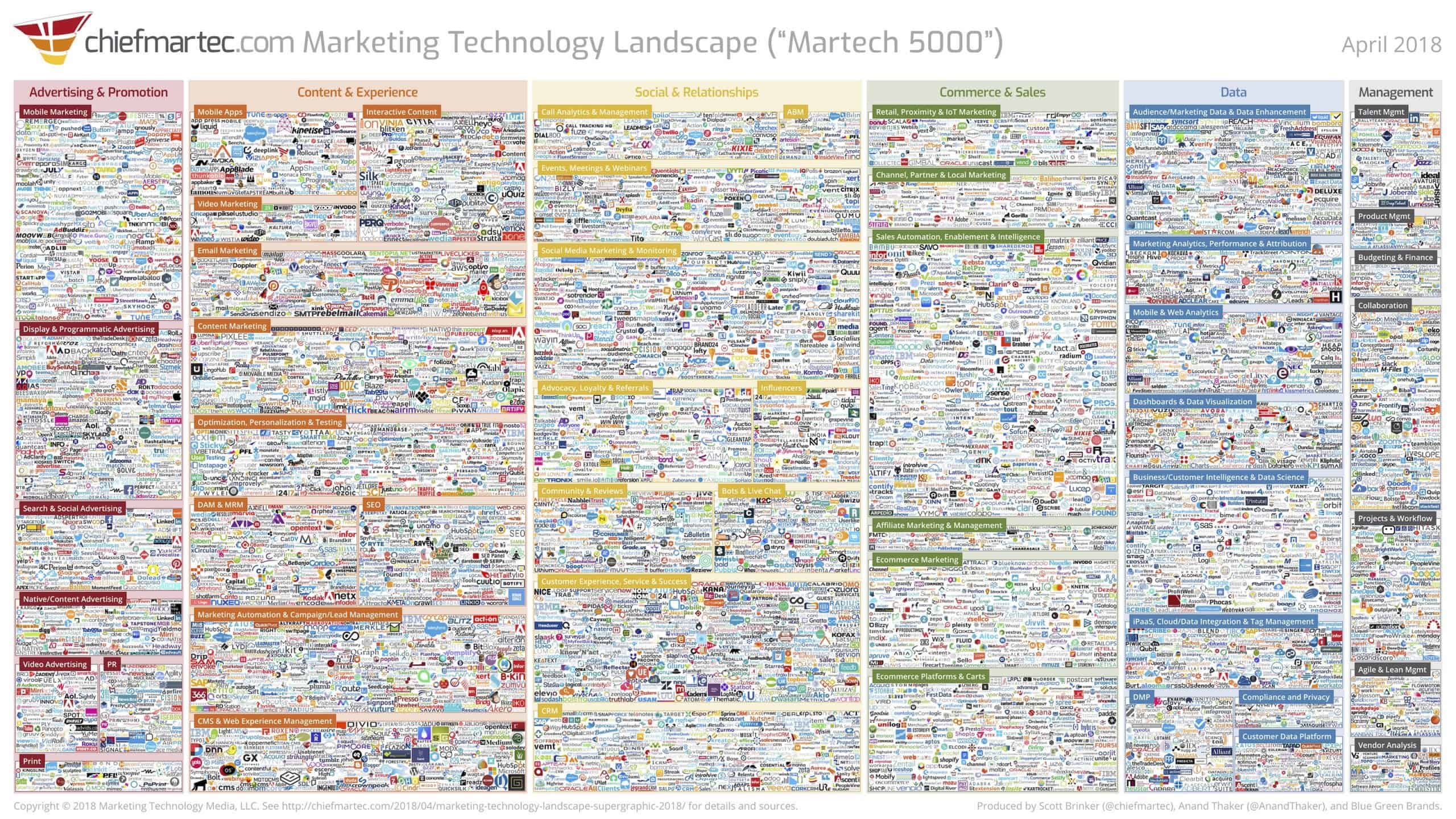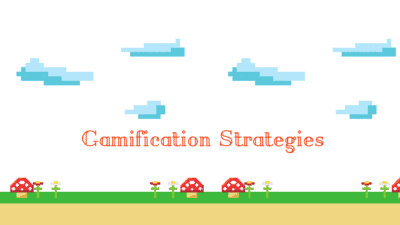Growing Your B2B Marketing Efforts: In-House, Independent Contractor, or Marketing Agency?

You read emails over breakfast, check LinkedIn while you wait in line at the coffee shop, skim blog posts about marketing productivity in between meetings, and you still don’t have enough time in the day to tackle everything your job throws at you.
B2B marketing is demanding.
Today’s fast-paced workplace challenges B2B marketing teams to evolve and to exceed increasingly high expectations. Everyone talks about a work/life balance, but it’s stressful to think about taking a break when your competitors are churning out content and marketing campaigns.
The State of B2B Marketing in 2018
B2B marketers using ABM methods
2017
81%
2016
49%
Marketing execs using 10+ marketing technologies
28%
Enterprises investing over $20,000 each month on SEO
48%
Lack of resources cited as being the biggest obstacle to successful lead generation
61%
Sources:
https://flipmyfunnel.com/flipmyfunnel-account-based-marketing-survey/
https://komarketing.com/industry-news/marketers-set-invest-martech-2018/
https://www.northstarinbound.com/state-enterprise-seo-2017/
https://business.brighttalk.com/blog/new-b2b-report-reveals-2015s-lead-generation-trends-html/
ABM (account-based marketing) is on the rise. This shift necessitates a new marketing skill set and a greater need for marketing and sales teams to work together.
How can you manage this, then?
The simplest solution is to increase the size of your marketing team.
But it’s more than just numbers, and we all know it. Yes, adding more marketing professionals allows you to delegate tasks, run more campaigns, specialize (in PPC, SEO, content, social media, or what-have-you), and it helps you reduce the chance of burning out due to being overworked. But it doesn’t address these marketing pain points:
- Determining when to invest in martech, and what systems are merely fads
- Lacking internal alignment, especially between sales and marketing departments
- Failing to communicate effectively
- Experiencing budget limitations and a lack of resources
- Matching competitor efforts
- Struggling with data analysis capabilities
- Having no long-term B2B marketing strategy
- Keeping up with ever-changing technology
- Maintaining an organized CRM database
- Finding and acquiring talented marketing professionals
How do successful companies grow their B2B marketing efforts? There are three options:
- You can expand your internal marketing department (i.e. hire more employees)
- You can hire a marketing contractor
- You can work with a marketing agency
We’ll explore the pros and cons of each of these options so you can determine which makes the most sense for you:
1. Expanding Your Internal Marketing Department
The more traditional approach to growing B2B marketing efforts is to increase the size of one’s in-house marketing department. This ensures complete control over all marketing efforts and decisions, down to the very last detail.
Pros
Like we said, you have complete control over your team: who you hire, how they fit in with your company culture, what their tasks and responsibilities are. You can build the perfect team with each employee complementing the skill sets of others.
You can micromanage. Many agencies and outside talent have their own way of doing things, and if it’s not the way you like to do it, there can be friction. An in-house marketing team can be molded to perform whichever way you see most fit.
Additionally, everybody is in the office with you. You benefit from strong relationships, water cooler talks, and general proximity (if your team gets along).
Cons
It takes time, energy, and resources to look for the right person. You have to find talent, oversee interviews, and once you’ve hired the right person (or people), you have to help extensively with onboarding and training. It’s a lot.
Marketing is a very dynamic field and your target buyers are changing the way they interact with products and services. They have different expectations of businesses today than they did even just one year ago. Marketing technology evolves rapidly, as do best practices. In order for your employees to do their best, you have to provide training.
If, for whatever reason, they leave, you have to do this all over again. You have finite time in your workday, and this (along with daily management of the department) takes up a considerable amount of time.
2. Hiring a Local Independent Contractor
An alternative to expanding your internal marketing team is to reach out to a marketing contractor for assistance.
Pros
By hiring a local independent contractor, you still get a face-to-face relationship. A marketing contractor can swing by your office to review campaigns or sit in on meetings. Depending upon your needs, they can work from home, as well. You don’t have to take time zones into consideration when planning meetings.
The stressors that you face with an in-house team are gone. You don’t have to deal with the heavy up-front investment with each new employee. Overhead costs like health insurance and paid leave are not applicable.
You have the flexibility to hire multiple specialists for various part-time gigs, usually at a lower cost than hiring a single FTE (full-time employee).
Cons
Much like in-house employees, you’re not sheltered if a marketing contractor decides to quit. If they do, you face a gap in your marketing efforts until the position can be replaced. Contractors require personal vetting to ensure they’re both knowledgeable and a good fit for your organization.
You may experience communication missteps. As a contractor, they may not feel comfortable speaking up and voicing their opinions and ideas. Your internal sales and marketing teams may not listen to them because of a perceived status differential.
There can be friction with literally bringing another marketer into your office to work with your existing team. It can be unnerving to some, and your current marketing employees may feel as if their job is threatened. This is where a remote agency’s strength lies: people see virtual teams as an extension of their department, as opposed to competition.
3. Hiring a Marketing Agency
Marketing agencies are businesses dedicated entirely to the creative, strategic, and technical development of marketing campaigns and lead generation for their clients. It’s what they do. When you hire a marketing agency, you know that they have the tools, expertise, and resources necessary.
Traditional marketing agencies are still very much a go-to solution for B2B businesses looking to expand and outsource their marketing efforts.
There’s something to be said for virtual marketing agencies, too. Practically the whole world has gone mobile. For marketing in particular, most work is done on the computer, and as long as there’s reliable internet access, it can be done from anywhere. This has been a game changer for marketing agencies, and B2B companies are capitalizing on the growing workforce that works remotely. In fact, 56 percent of B2B marketers outsource at least a part of their marketing to virtual agencies.
Pros
Agencies (whether local or remote) are more cost efficient. You can have multiple marketing professionals working on your projects for the price you’d be paying for a single full-time employee.
A cost-saving benefit unique to virtual marketing agencies is the simple fact that there is no office. What does this mean for a B2B company looking to hire a marketing team? Your fees aren’t paying for any “new age” office perks like arcade rooms, kombucha on tap, trendy water features in the exposed brick lobby, fancy conference rooms, and exorbitant building rent. Overhead costs are lower with remote marketing agencies, so your fees go directly to the talent.
When it comes to marketers, you get the best of the best with virtual agencies. Why? The talent pool is widened exponentially when you open your search to the entire planet. If your business is based in a densely populated city (like New York) that attracts the best and the brightest, you may not see a big difference between a local agency and a remote one. But the workplace is evolving, young professionals are seeking greater work/life balance and flexibility, and thus remote jobs (and entire companies) are responding. Plus, if you hire an agency on the east coast and you’re on the west coast, or you have a team working across multiple time zones, you benefit from more than just the standard eight-hour workday.
Marketing agencies are pros when it comes to communicating data and campaign results. Don’t equate remote agencies with poor communication: virtual teams are acutely aware of the additional hurdles they face in establishing a solid connection with clients. It seems counterintuitive, but remote teams are usually better at communication than local teams (and sometimes even in-house teams). It’s because they have to be. They don’t save up questions to ask at monthly get-togethers. Instead, they shoot you an email or pick up the phone or send you an instant message.
A good virtual agency will have regular check-ins in the form of an audio/visual conferences, phone calls, email, and more. This also translates into a better marketing/sales relationship for you because communication is literally built into the model. In today’s world, there are many ways to connect. Email. Phone. Slack. UberConference. GoToMeeting. Skype. Collaboration in Google Drive. You name it, it’s been created.
Some managers are hesitant to team up with remote workers since they are working from home, without supervision. Local marketing agencies with a traditional workspace environment put execs at ease. To address these concerns, virtual marketing agencies have built-in measures to ensure productivity. Hubstaff is a great example of a time-tracking tool that takes regular screenshots of a user’s computer for accountability. (Many articles have been written about the increased productivity of employees allowed to work from home).
It’s also worth noting that virtual teams are more glued to their computers. Remote employees meet and get to know one another, but there aren’t the personal distractions and break room banter you’d see with in-house teams or local agencies.
Don’t feel bad, though — remote team members get their dogs, cats (and goats, in my case) as their desk buddies.

Cons
Full disclosure: you’re reading the opinion of a marketer who works at a marketing agency. (I believe in the benefit of an agency, but understand that it’s not for every B2B company). Some people require face-to-face interactions with coworkers. Many virtual marketing agencies only drop into their clients’ offices a few times each year, so if you know you need proximity, a local marketing team might be your best bet.
Depending on the size of the agency, you’ll have to share their services. You aren’t the only client they have, and unless you’re their highest-paying one, the agency may have to push a deadline or two to accommodate their workload. Good marketing agencies will be adept at managing priorities and setting realistic deadlines.
Another downside to working with a marketing agency is that you lose the ability to micromanage. If your marketing team extension is now hundreds or thousands of miles away in the case of virtual marketing agencies, or even just in a separate office across town, you can’t expect to have complete control and visibility into every last detail. This doesn’t have to be a bad thing, though. It allows you to focus on the bigger picture while the agency focuses on the nitty gritty.
Where Are Your Marketing Gaps?
Do you need to improve your content? Ramp up lead generation? Paid advertising campaigns online? Improve SEO? Lead follow-up?
There are remote agencies that, rather than identifying solely as a digital marketing agency, identify as “demand generation” agencies. Here’s a great article that explores the difference between demand generation and lead generation. Demand generation agencies offer marketing services plus sales assistance (like cold calling, appointment setting, lead database optimization, lead follow-up, and more). Think of these as agencies that integrate with and augment your existing marketing and sales teams.
DemandZEN is a demand generation agency. We specialize in B2B marketing for companies in the tech industry, and we’ve had clients from big data to networking, and everything in between. If you’re interested in learning more about how a virtual marketing agency can help your business, feel free to reach out to us.
You Might Also Enjoy These Posts
Demand Generation vs Lead Generation
Gamification Strategies: Badges in B2B Marketing
Welcome To DemandZEN
DemandZEN specializes in Account-Based Demand Generation and solving the challenges around finding, engaging and converting target accounts into real opportunities for B2B Technology and Services companies.



